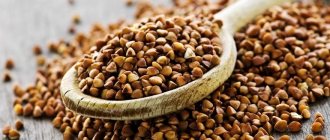Stomach diseases are often accompanied by nausea and vomiting, heaviness in this organ and pain in the area around it. If such signs begin to appear frequently, then this may indicate gastritis, the main cause of which is frequent snacking and poor nutrition. When a doctor makes such a diagnosis, the question immediately arises about what can be eaten and what foods cannot be consumed. The same applies to yogurt, whether it is useful for gastritis or contraindicated.
Dairy products for gastritis always raise a lot of questions. Some of them are recommended by doctors, others are on the prohibited list due to their composition. Therefore, we could not ignore such a traditional product as yogurt. We want to tell you whether you can drink yogurt if you have gastritis, why it is recommended at any age, and which product is considered the most useful.
Features of gastritis
Gastritis is accompanied by inflammation of the gastric mucosa, which leads to a reduction in acids and enzymes produced during digestion.
Most often this disease appears after:
- Systematic malnutrition;
- Long-term use of antibiotics and potent drugs;
- Stressful situations caused by burns or operations;
- Ingestion of h.pylori bacteria.
If you feel discomfort in the upper abdominal cavity, which is accompanied by vomiting and nausea, you can go straight to the doctor to rule out gastritis.
The main focus of treatment will be to review the patient’s diet. Sometimes the foods he ignores can be more beneficial than medications. These products include natural yogurt, which can be prepared at home.
Cooking rules
Gastroenterologists recommend that patients who have been diagnosed with various forms of gastritis drink their own homemade fermented milk drink. To do this, they should purchase skim cow's milk and a special starter, which, as a rule, is in powder form and is sold in pharmacies and retail chains in a large assortment.
When preparing the product, you must follow standard technology:
- Dishes are prepared, for example, an enamel saucepan, a thermos or a special yogurt maker.
- A liter of milk should be boiled and cooled to approximately 40 degrees.
- A few spoons of milk are poured into a small bowl, after which a portion of the starter is added. The ingredients must be mixed and poured into the remaining milk.
- The container must be wrapped in a towel and blanket so that a certain temperature regime is maintained in it for eight hours.
- After the specified time has passed, remove the container and remove the drink from it. It should be placed in a glass container in which it will be stored in the refrigerator after cooling.
- Right away, a fermented milk drink may have a liquid structure, but over time it will begin to thicken.
- It is not recommended to store yogurt for more than seven days, even in the refrigerator.
Before using the product, you can add cut fruits or berries to it. You can also pour it over low-fat cottage cheese and season vegetable and fruit salads. After removing the drink from the refrigerator, it should stand for a while to reach room temperature. It is forbidden to heat it even in the microwave, as probiotic cultures may die at high temperatures.
The benefits of fermented milk products
It is not for nothing that in case of diseases of the stomach and other organs of the digestive system, when selecting therapeutic nutrition, special attention is paid to fermented milk products, which have a huge number of positive properties. They contain a large number of life-giving bacteria and fungi, which allows you to naturally adjust the composition of the intestinal microflora, but with gastritis in humans it is often completely disrupted. Thanks to fermented milk products, metabolism is normalized and excess fluid is removed from the body. Among other things, fermented milk drinks have antimicrobial properties, and this promotes the healing of ulcers and erosions caused by gastritis.
Are there any contraindications?
There are three main reasons for the ban:
- Individual intolerance.
- Yogurt is prohibited for erosive gastritis.
- Symptoms of the disease were just beginning to appear. That is, in case of exacerbation of gastritis, it is also not recommended.
There are a few more rules that must be followed when choosing and consuming yogurt. Buy a product that contains live bacteria. The shelf life of the drink should be no more than 7 days. If yogurt is stored for 2-3 weeks or even a month, preservatives must be added to it.
As a rule, any unpleasant sensations when consumed are associated not with the fermented milk product itself, but with the components that are added to it: flavorings, thickeners, dyes. That is why it is so important to give preference to natural products that do not contain food additives. Read the label carefully before every purchase.
Why is yogurt the #1 dairy product?
Among all food products made from milk, yogurt is considered one of the healthiest. The explanation is simple:
- An excellent source of potassium and calcium, proteins, vitamin D.
- It tastes very pleasant and perfectly quenches thirst and hunger for several hours.
- Charges the body with energy.
- Yogurt contains special microorganisms - probiotics. Bacteria have a positive effect on the digestion process, normalize metabolism and speed it up. Thanks to probiotics, harmful toxins are removed from the body, and the immune system is strengthened.
- Yogurt contains dozens of minerals, amino acids and trace elements. This composition makes it truly indispensable in the healthy diet of adults and children.
The results of studies conducted in recent years confirm that yogurt for gastritis can be included in the diet menu. Moreover, when used correctly, it helps cure the disease. Of course, if used in combination with drug therapy.
Beneficial properties of drinking yogurt
Ryazhenka for gastritis with high acidity
Yogurt is a popular fermented milk product, which consists of natural milk and a special starter with cultures of Bulgarian bacillus and thermophilic streptococcus. This is an excellent source of many useful vitamins, microelements and other substances vital for humans.
Thanks to regular consumption of yogurt, the body is saturated with vitamin D, as well as essential microelements - calcium, potassium. But these are not all the beneficial properties of fermented milk drink:
- Yogurt perfectly saturates and quenches thirst.
- The product contains probiotics - special substances that improve the functioning of the digestive system and normalize stool.
- Probiotics improve the elimination of harmful waste and toxins from the body.
- Yogurt strengthens the immune system, gives strength and energy.
- The product is low in calories, so it is ideal for those who closely monitor their figure.
Thanks to the huge number of probiotics included in yogurt, it has the most positive effect on the state of the gastrointestinal tract - normalizes digestion and stool, removes toxins and other harmful substances from the body, and accelerates metabolic processes.
Many people are afraid to eat yogurt because it is a fermented milk product. These are vain fears - the acidity level in it is much lower than in gastric juice, so yogurt does not have an irritating effect on the body. When consumed correctly, fermented milk product helps reduce the symptoms of gastritis.
Benefits of this product
Yogurt contains essential protein as well as vitamins. It is made by fermenting fresh milk. The acidity of this product does not harm the human body.
This is because the acid levels in stomach juice are much stronger than in yogurt. The protein found in yogurt helps normalize the acid-base balance in the body.
With this product you can easily quench your thirst and hunger; it enriches the body with microelements such as calcium and potassium. It contains a large number of microorganisms necessary for the body - probiotics.
They have a positive effect on the functioning of the intestines, help cleanse the body of toxins and waste, and strengthen the body’s defenses. It is thanks to the large amount of microelements, vitamins, amino acids and protein that yogurt has a positive effect on the body.
Scientists have found that with proper use of this product, gastritis symptoms can be alleviated. and when used in the diet menu along with medications, there is a chance to restore your health quickly.
But, nevertheless, there are a number of restrictions and contraindications that must be followed when consuming yogurt.
This dairy product contains vitamin D, potassium, calcium and protein, and therefore has a beneficial effect on the body:
- Binds and neutralizes hydrochloric acid;
- Helps in the absorption of microelements, vitamins and amino acids;
- Improves metabolism;
- Supplies positive bacteria – probiotics;
- Increases immunity.
Benefit
This product contains a large number of beneficial bacteria that have a beneficial effect on the gastrointestinal tract. If a person has a pathology such as gastritis, then before introducing yogurt into his diet, he needs to consult a gastroenterologist. This is due to the fact that there are certain contraindications for different forms of this disease.
In addition to useful bacteriological cultures, the product contains vitamins and protein necessary for the normal functioning of the body. It is absolutely harmless, as it is made in the process of fermenting cow's milk using special starter cultures. As for the acidity level of yogurt, it is less concentrated than gastric juices.
Thanks to natural yogurt, people can quickly quench hunger and thirst, and at the same time enrich the body with a wide range of microelements.
The components present in the product have the following effects:
- improve intestinal function;
- help remove toxins and toxic substances;
- relieve the symptoms of gastritis;
- strengthen the body's protective abilities;
- restore intestinal microflora, etc.
The effect of yogurt on digestion during gastritis
There is an opinion that consuming the product cures gastritis caused by the bacteria Helicobacter Pylori. Application is possible during complex therapy.
But gastritis has different types. A product that is suitable for gastritis with a high level of stomach acidity may not be suitable if the level is low. To understand the extent to which yogurt is permissible for gastritis, let’s consider the product’s effect on people with different levels of stomach acidity.
Video on the topic: Yogurt: benefits and harms
Causes
Gastritis occurs for various reasons, including:
- consumption of low-quality, contaminated food;
- entry into the body of the pathogenic bacterium Helicobacter pylori;
- intoxication, poisoning with chemicals;
- regular and excessive consumption of strong alcohol;
- smoking;
- taking medications;
- dysbacteriosis;
- impaired metabolism;
- stress, neurosis, depression;
- unbalanced diet;
- fatty, salty, spicy, hot foods;
- endocrine diseases;
- heredity.
Poor nutrition, weight loss or weight gain also provoke gastrointestinal problems. For gastritis of any type, yogurt is recommended as the basis of a proper diet.
Features of use for various forms of gastritis
Of course, the product has beneficial properties. But there are many contraindications for use that you also need to know about. That’s why you can’t answer “Yes” unequivocally to the question of whether you can have yogurt for gastritis.
Any of these types can be treated with medication, but any doctor will advise you to follow a certain diet; a diet is required. The food for each of these types of gastritis is different, there are also common foods, but the exact diet must be agreed with your doctor.
Yogurt for hyperacid gastritis (high acidity)
With this form of the disease, acidity levels are increased. Therefore, the therapeutic diet is aimed at reducing the production of gastric juice and its aggressive effect on the walls of the stomach.
First of all, products that contain coarse fiber (stringy meat, bran bread, radishes) are excluded from the diet. Secondly, food that stimulates secretion is removed. This includes all citrus fruits, fruit juices, and alcoholic drinks.
Another necessary condition is compliance with optimal temperature indicators. The food consumed should not be too hot or too cold. What can you say about yogurt? This is a fermented milk product, but the acid level in it is significantly lower than in the same kefir. Moreover, the acidity of gastric juice is higher, which means drinking yogurt for gastritis will not irritate the inflamed mucous membrane. The exact opposite effect is achieved. The milk protein contained in the product binds acid and neutralizes it. Acidity also decreases, irritation is relieved.
In case of high acidity, several nuances of consuming yogurt and other dairy products should be taken into account:
- Milk is best consumed with tea;
- Kefir is highly acidic and should not be drunk;
- You can make cheesecakes or casseroles, lazy dumplings from cottage cheese;
- Yogurt should be eaten in moderation, it is better to take 1 tsp, several times a day;
- Yogurt should not be sour or fatty;
- You cannot eat a large amount of yogurt at one time;
- It’s better to make yogurt yourself, then it will definitely be natural and fresh;
- Yogurt can be used as a salad dressing or eaten with fruit.
Along with taking yogurt, some nuances of the treatment of hyperacid gastritis should be taken into account; therapy for it will be aimed at reducing stomach acidity, and for this you must adhere to the following rules:
- Refrain from eating rutabaga, sinewy meat, bran bread, radishes, that is, those foods that contain fiber;
- You can only drink water at room temperature, it should not be cold or hot so that the stomach can work as usual;
- Avoid eating substances and foods that promote the production of hydrochloric acid in the stomach, such as citrus fruits, juices, alcohol, etc.
If you follow the principles of fractional nutrition, you will improve your health even better. At first, it is recommended to consume fermented milk product 1 spoon 2-3 times a day. Of course, it must contain a minimum amount of fat and be natural. It is allowed to add some fruit to yogurt for gastritis with high acidity. Sometimes it is used as an additive to salads and cereals, which is also quite acceptable.
Yogurt for hypoacid gastritis (low acidity)
When the stomach does not produce enough juice, diet becomes the norm. This is due to the fact that the content of hydrochloric acid in the digestive system decreases. The patient has to reconsider not only the diet, but also the conditions for eating. You need to eat in small portions, chew pieces of food well. Foods that are too peppery, fried or salty are excluded from the diet.
What can you eat if you have a hypoacid form of the disease? Of course, these are products that enhance juice secretion. A variety of fruit drinks made from lingonberries and cranberries, sea buckthorn and carrots, and pumpkins are suitable. You can also include small amounts of citrus fruits in your diet.
But some dairy products are still not recommended. For example, drinking milk in its pure form is undesirable, but it can be added to tea and porridge. Eliminate fatty sour cream, glazed and salted cheeses from your diet. As for the conditions of use, they are no different from hyperacid. Yogurt in the hypoacid form should be natural, without flavors, dyes and other additives. It is eaten in small portions throughout the day.
Yogurt for hyperacid gastritis
Hyperacid gastritis is a gastritis in which increased stomach acidity is diagnosed. Accordingly, the treatment of this disease is aimed at reducing this very acidity.
Since yogurt is considered a fermented milk product, its Ph level raises doubts among many patients with gastritis. But, in fact, the acidity of yogurt is inferior to the acidity of gastric juice and cannot increase it even more. Moreover, the milk protein contained in this product becomes a kind of binding neutralizing element for hydrochloric acid. The result of this interaction is a significant reduction in the increased acidity of the stomach and the elimination of discomfort.
Since yogurt is considered a fermented milk product, its Ph level raises doubts among many patients with gastritis. But, in fact, the acidity of yogurt is inferior to the acidity of gastric juice and cannot increase it even more
In order to achieve the maximum effect when introducing yogurt into the “medicinal menu”, it is enough to take care of the naturalness/low-fat nature of this product and set yourself a strict fractional dosage of intake - 1 tablespoon / several times a day. For those who cannot eat yogurt just like that, flavorings in the form of fruit or the product can be used as a sauce, base for porridge, or dessert.
At the same time, it is worth excluding from the menu some vegetables (rutabagas, radishes), stringy meats, alcoholic drinks, citrus fruits, and fresh juices. And also observe the temperature of the food you eat (neither hot nor cold).
If the patient complains of nausea, vomiting, severe pain, it is better not to include yogurt in the menu at all until the acute period of the disease has passed.
IMPORTANT! The best option would be a consultation with an experienced gastroenterologist, who, based on the results of the patient’s examination, will draw up an adequate treatment algorithm. Whether fermented milk products will be present in it depends on the patient’s condition at the moment.
Contraindications to consuming yogurt
Despite the fact that yogurt is a desirable product for gastritis, sometimes it cannot be eaten for certain reasons:
- Exacerbation of the disease. In the acute form of gastritis, the gastric mucosa, under the influence of inflammation, begins to work incorrectly; consumption of fermented milk products can only aggravate the situation.
- Individual intolerance.
- Yogurt is prohibited for erosive gastritis.
- Low quality product. This also includes its expired expiration date. In this case, it is better to get rid of the product and not use it anymore.
- Unnaturalness of the product. If yogurt contains various additives and stabilizers, then such a product will only harm a sore stomach and not help it. Fat yogurt is unacceptable for the treatment of gastritis. It is best to purchase yogurt at a pharmacy or make it yourself by purchasing a special starter and low-fat milk.
Video on the topic:
Symptoms
The most common signs of the disease include nausea, vomiting, aching and burning pain in the stomach, which may intensify after eating, lack of appetite, a feeling of heaviness, bloating, dizziness, weakness, irritability, an unpleasant taste in the mouth, heart rhythm disturbances, decreased or increased pressure, fever, sudden weight loss. Yogurt for gastritis in the initial stages can stabilize the patient’s condition. The natural product is quickly absorbed in the stomach, releases all nutrients, does not leave a feeling of heaviness, and heals the intestines.
Recommendations for use
For gastritis, it is necessary to take yogurt with a small amount of fat. In this case, the functioning of the gastrointestinal tract is normalized, the intestinal microflora is restored and the amount of energy needed by the body increases.
It is recommended to take it if you have diseases of the digestive system only after consulting your doctor. The positive effect on the body has also been proven by the presence of essential microelements. For example, such as calcium and potassium. They are essential for bone and cardiovascular function.
Yogurt also helps strengthen the immune system and improve the functioning of the gastrointestinal tract. You can eat it in small quantities in several approaches. It is important that this product is made from natural ingredients.
For gastritis with high acidity, you can take yogurt as a dressing for fruit salad.
For gastritis with a low acid level, it is recommended to eat it as an additive to dishes, but not as a separate product.
The normalization of the digestive system by taking this product has been proven repeatedly.
Contraindications
People who have been diagnosed with gastritis should take into account the existing contraindications to drinking this fermented milk drink:
- The presence of individual intolerance.
- The presence of preservatives in the product, which can provoke an allergic reaction. To prevent its development, it is necessary to carefully study the composition of the drink during the purchasing process, and buy only one that contains probiotic cultures.
- Patients with gastritis should not consume yoghurts that have a long shelf life of more than seven days.
Patients must also adhere to the following recommendations given by gastroenterologists:
- With such a pathology as gastritis, you need to drink fermented milk drinks with a minimum fat content. In this case, the functioning of the gastrointestinal tract will be normalized, the amount of energy will increase, and the intestinal microflora will be restored.
- The product should be introduced into the diet after consultation with a gastroenterologist.
- The natural drink should be drunk in small portions throughout the day.
- With a high concentration of stomach acids, it should be used as a dressing for dishes and salads.
- When the concentration of stomach acids is low, it is recommended to drink yogurt as a supplement to meals.
How to cook it at home?
However, the best yogurt will be the one you make with your own hands. This is not difficult to do - just buy a special starter at the pharmacy, and milk with a fat content of no more than 1-2% in the supermarket.
The recipe for preparing natural yogurt is as follows:
- Prepare the dishes and wash them thoroughly.
- Boil the milk and then cool it to 37-40 degrees.
- To prepare the starter, fill a bottle from the pharmacy with warm water, then shake. The starter should be completely dissolved.
- After this, the starter is poured into milk and stirred thoroughly.
- The finished mixture is poured into a container for further fermentation. This can be an ordinary thermos or a saucepan that you wrap in a warm blanket. The main condition for successful cooking is maximum heat retention. You can also buy a yogurt maker at the store - it greatly simplifies the process.
- The dishes are left warm for 8-10 hours. After this, the drink is poured into a storage container.
You can consume ready-made natural yogurt for 3 days. You just need to store it in a cool place. Before use, you can add jam, syrup or other additives.
We can conclude that for a person with gastritis, yogurt is not only a tasty treat, but also an effective medicine. Just be aware of the restrictions and always coordinate your diet with your doctor.
Store or home
Still unsure whether you should try to prepare this fermented milk product at home and whether it will be as good as the store-bought one? No, it won’t if you have access to good quality products for its production/natural starter cultures. Moreover, all this can be purchased from time-tested people.
The further scheme is quite simple:
- Prepare a yogurt maker/clean pan/other utensils.
- Boil the required amount of milk (the recommended volume is indicated on the starter package) and cool to 35-40 C.
- Dilute the starter with a small amount of warm water and add it to the milk, remembering to mix thoroughly.
- Set the yogurt maker to the required mode, wrap the pan well (to retain heat) for 8-9 hours.
- After the specified time, you will receive real homemade yogurt. Select only suitable storage containers and place the product in the refrigerator.
The shelf life of this yogurt is about 3 days (at a reduced temperature). You can eat it, following the doctor’s recommendations, both in its pure form and with additives/as a supplement.
Yogurt Additives
It is better not to mix natural yogurt used for treatment. If you want variety, healthy ingredients are added.
A good ingredient for yogurt is honey. Bee product regulates acidity, helps tissue regeneration, contains beneficial substances, strengthens the immune system and soothes.
Fruits and berries are added to yogurt before serving. It is advisable to grind the products using a blender. Bananas, apples, pears, persimmons, and cherries are suitable. Bananas have enveloping properties and contain fiber. If secretion is low, add sour varieties of apples; if secretion is high, add sweet ones. Pear normalizes intestinal function and removes toxins; cherries contain a sufficient amount of iron to prevent deficiency of the element.
It is allowed to consume only ripe fruits and in limited quantities so as not to harm the intestines.
How to choose healthy yogurt
For gastritis, it is better to eat homemade yogurt. The person himself controls its preparation, terms and storage conditions, and uses healthy natural ingredients.
Store-bought yogurt can only be consumed if:
- its fat content is 2–2.5%;
- it is manufactured maximum 48 hours before the date of purchase;
- it was stored on the refrigerated shelves of the store at a temperature within +5-8º C;
- its shelf life does not exceed 7 days from the date of manufacture;
- The composition contains no fillers, starch, preservatives, monosodium glutamate, or flavorings.
Such store-bought yogurt will not provoke an exacerbation of gastritis: it has the same properties as a homemade drink. You can add fruit purees to the product. After opening the package, the drink should be stored in the refrigerator and consumed before the expiration date specified by the manufacturer.
What else can you use?
Drinking fermented milk drinks will relieve indigestion, flatulence, colic and intestinal pain.
If a patient has problems with high acidity, it is necessary to be careful when choosing a fermented milk product, since some of them tend to increase the secretion of gastric juice. With a reduced acid level, it is allowed to drink almost any type of fermented milk drinks, since due to the increase in acidity, the patient will experience indigestion, flatulence, colic and intestinal pain.
Different types of dairy products should be consumed depending on what symptoms bother a person.
Consumption of kefir for gastritis of the stomach
Kefir is very useful for gastritis, it has medicinal properties, helps improve digestion and intestinal function, normalizes the metabolic process, and promotes the colonization of the intestines with beneficial microorganisms. Thanks to this, food is digested as efficiently as possible, the body receives all the necessary microelements and substances, which is important for gastritis and other pathologies of the gastrointestinal tract. Kefir also helps relieve constipation, as it has a mild laxative property.
However, it is worth paying attention to the fact that kefir increases the level of hydrochloric acid, and people with severe heartburn, when the disease worsens, need to take this product with caution. But with low secretion of hydrochloric acid, daily consumption of kefir will only bring a positive effect, since its level will increase, which will help eliminate digestive problems, heaviness in the stomach, and excessive gas formation.
Eating cottage cheese
Cottage cheese for gastritis is an indispensable product in the diet of a sick person. It contains a large amount of protein, which is easily absorbed by the body without burdening the digestive organs. The amino acids present there help normalize digestion and improve intestinal function. In addition to these beneficial properties, cottage cheese helps to rid a person of extra pounds, which can negatively affect his overall well-being.
However, if you eat cottage cheese for gastritis, it is important to take into account what level of acid a person has. If it is increased, then the cottage cheese must be subjected to heat treatment - baked. This can be a casserole with the addition of fruits, dried fruits, and honey. You can also prepare dumplings both with filling and lazy ones, bake apples with cottage cheese.
If the level of hydrochloric acid is low, cottage cheese is consumed in any form. It can be taken by mixing with sour cream, milk or cream. Using a blender, you can prepare a delicious fluffy curd mass, to which you can optionally add sour cream, fermented baked milk or kefir, sweetening it a little. Cottage cheese can also be used to stuff pancakes, tartlets, and make other delicious dishes.
Ryazhenka in the diet
This fermented milk product contains a sufficient amount of fats, amino acids and vitamins necessary for the body, and is also rich in elements such as phosphorus and calcium. However, there are certain rules of use here too. This fermented milk product should be taken with caution in case of chronic or erosive gastritis with increased acid levels, as it promotes increased secretion of hydrochloric acid, which intensifies inflammatory processes, and the patient may begin to experience abdominal pain and other problems.
If a person has acute or chronic gastritis, then during an exacerbation it is necessary to take this product with caution.
Video on the topic:
Yogurt for hypoacid gastritis
If hyperacid gastritis means a significant increase in stomach acidity, then hypoacid gastritis is characterized, in turn, by low production of hydrochloric acid.
However, even in this case, introducing yogurt into the diet requires extreme caution:
- It is better to choose a fermented milk product that is more acidic and has a short shelf life.
- If you have low acidity, it is not recommended to consume yogurt in its pure form. It’s better to make it into salad dressing, sauce, and add fruit. Otherwise, the patient risks further damage to the mucous membrane of his stomach.
- The product should be added to the menu in fractions, a teaspoon several times a day.
- Yogurts must be natural, without dyes/preservatives. It is better if they are made at home using natural starters. But keep an eye on their fat content.
To “consolidate the effectiveness of treatment”, it is also worth eliminating unhealthy foods (spicy/fried/salty/smoked) from the diet, replacing them with fresh fruit drinks, mineral water, vegetables with high fiber levels and even citrus fruits.
Only if you follow these recommendations can you expect a positive result from eating fermented milk products. Otherwise, a low level of hydrochloric acid will provoke processes of food rotting in the digestive tract, gas formation will increase, unpleasant belching and a feeling of fermentation in the stomach will appear.
Contraindications/restrictions
Fermented milk products themselves can only cause potential harm, since their benefits have been proven by many sources, including the patients themselves suffering from diseases of the gastrointestinal tract.
However, it is worth considering not only the beneficial properties of the product, but also the individuality of each organism, the quality of yogurt production and the stage (acute/chronic) of the disease. It is on these grounds that there are some restrictions on the introduction of yogurt into the diet:
- For gastritis of the stomach, it is allowed to consume homemade yogurt (in limited quantities). As for store-bought products, they should be the freshest, with a shelf life of no more than a week. It is strictly forbidden to consume fermented milk products that have expired.
- Carefully study the composition of finished products and do not buy those that contain various additives, flavors, preservatives, etc.
- Yogurt for gastritis is allowed only with a low percentage of fat content.
- During periods of exacerbation of the disease (seasonal or due to non-compliance with the recommended diet), it is better to hold off on yogurt on the menu, since it can only aggravate the patient’s condition. Such limitations are explained mainly by severe inflammation of the mucous membrane.
- Do not forget about the likelihood of individual intolerance to fermented milk products or an allergic reaction to a particular type/brand of yogurt.
And most importantly: if you position yogurt as a medicine for gastritis, then the doctor should prescribe/prohibit it. And don’t forget that there should be moderation for everything, even the most healthy and tasty things.
Composition and properties of the product
Yogurt is a fermented milk product that is obtained by adding starter cultures to fresh milk. It contains several useful substances:
- calcium is an element for building bone tissue;
- Vitamin D - helps absorb calcium from food;
- amino acids - normalize metabolic processes in the body;
- probiotics are microorganisms that participate in digestive processes in the intestines.
Medical research has established that natural low-fat yogurt can be used as part of complex therapy for gastritis.











